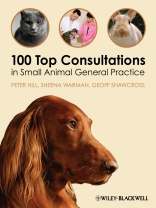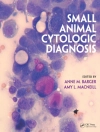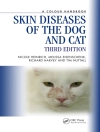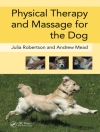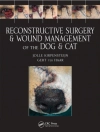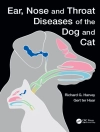Focusing on ‘day one competencies’, this book offers essential guidance to the most common problems encountered in small animal general practice. Addressing 100 core scenarios, it is ideal for the undergraduate or newly qualified vet, and for those seeking an up-to-date refresher. Organized by presenting sign (diarrhoea, itching) or disease (diabetes mellitus, pancreatitis), and with colour illustration throughout, each chapter explains:
* how to make a diagnosis
* which interventions are most appropriate in general practice
* what the vet should say to the client before and after examination
The authors also offer invaluable advice on other key topics such as annual health checks, neutering and euthanasia, and they tackle the tough questions: What if it doesn’t get better? What is the low cost option? When should I refer?
Never before has so much practical information been brought together in a single volume. Like having an experienced or specialist clinician standing by your side in the consulting room, 100 Top Consultations will become a trusted companion for students and practitioners alike.
Mục lục
History taking.
The Physical examination.
Diagnostic approaches.
Health checks and vaccinations.
1. The new puppy and kitten.
2. The annual health check.
3. Advising on spaying and castration.
4. The Pet Travel Scheme.
General illnesses.
5. Inappetence and anorexia.
6. Weight loss.
7. Polydipsia and polyuria.
8. Pyrexia.
9. Anaemia.
10. Jaundice.
11. Collapse.
12. Abdominal distension.
13. The Fe LV positive cat.
14. The FIV positive cat.
Skin problems.
15. The itchy dog.
16. Preventing and treating ectoparasites.
17. The dog with pyoderma or Malassezia dermatitis.
18. Treating the atopic dog.
19. The dog with a hot spot.
20. The dog with acral lick dermatitis (lick granuloma).
21. Anal sac problems.
22. Ear infections.
23. The itchy cat.
24. The animal with a lump.
25. The dog with urticaria or swollen extremities.
26. The cat bite abscess.
27. The lipoma.
28. The histiocytoma.
29. The mast cell tumour.
30. The sebaceous adenoma.
31. The dog that is losing hair.
32. Dermatophytosis.
33. The dog with demodicosis.
34. Skin problems in exotic animals.
Gastrointestinal problems.
35. Dental disease.
36. Retching and gagging.
37. Vomiting.
38. Diarrhoea.
39. The dog with haemorrhagic gastroenteritis.
40. The dog with colitis.
41. Liver disease.
42. The dog with pancreatitis.
43. The dog with gastric dilatation and volvulus.
44. Obstipation and megacolon.
Musculoskeletal problems.
45. Foreleg lameness.
46. Hindleg lameness.
47. Advising on degenerative osteoarthritis.
48. The ruptured cruciate ligament.
49. Fractures.
50. Orthopaedic problems in young and growing dogs.
51. Spinal pain and disk protusions.
Cardio-respiratory problems.
52. Coughing.
53. The dog with kennel cough.
54. The dog with heart failure.
55. The dyspnoeic cat.
56. The puppy or kitten with a heart murmur.
57. Sneezing and nasal discharges.
Eye problems.
58. Eyelid problems.
59. Conjunctivitis.
60. Corneal ulcers.
61. Cataracts.
62. Blindness.
Urinary tract problems.
63. The dog with cystitis or haematuria.
64. The cat with cystitis or haematuria.
65. The blocked cat.
66. The dog with incontinence.
67. Renal failure.
68. The dog with prostatic disease.
Reproductive tract problems.
69. The dog with pyometra.
70. Advice on whelping.
Endocrine problems.
71. The dog with hypothyroidism.
72. The dog with hyperadrenocorticism.
73. Diabetes mellitus.
74. The cat with hyperthyroidism.
Emergencies and trauma.
75. The road traffic accident.
76. The dog with a pharyngeal foreign body.
77. Problems associated with grass seeds.
Cancer.
78. The animal with cancer.
79. The dog with a mammary tumour.
80. The dog with lymphoma.
Neurological problems.
81. The dog having seizures.
82. Hindlimb ataxia and weakness.
83. Vestibular disease.
Behaviour problems.
84. The aggressive dog.
85. The frightened dog.
86. Separation anxiety.
87. Inappropriate elimination.
Poisonings.
88. Dealing with suspected poisoning.
89. Warfarin poisoning.
Exotic animals.
90. The sick rabbit.
91. The sick hamster.
92. The sick bird.
93. The anorexic tortoise.
Miscellaneous.
94. Illnesses in animals that have travelled abroad.
95. Elective euthanasia.
96. TBC.
97. TBC.
98. TBC.
99. TBC.
100. TBC.
Appendix 1 – Use of antibiotics.
Appendix 2 – Use of glucocorticoids.
Appendix 3 – Use of non-steroidal anti-inflammatory drugs
Giới thiệu về tác giả
Dr Peter Hill is senior lecturer in veterinary dermatology at the University of Bristol, combining clinical and teaching responsibilities with an active research programme. He holds the RCVS Diploma in Veterinary Dermatology and is a Diplomate of the American College of Veterinary Dermatology. He is the author of over 50 scientific publications, is a former Editor of the journal Veterinary Dermatology
Sheena Warman is currently a lecturer in Small Animal Internal Medicine at the University of Bristol with special interests in emergency medicine and critical care. She obtained the RCVS and European Diplomas in Small Animal Medicine in 2004.
Geoff Shawcross qualified from the University of Liverpool in 1970, and has since spent his whole career in general practice, dealing primarily with small animals. After taking over ownership of a small animal practice, he built it up into a veterinary hospital. He obtained the RCVS Certificate in Small Animal Orthopaedics in 1989. He has broad interests in all aspects of small animal practice and surgery.
